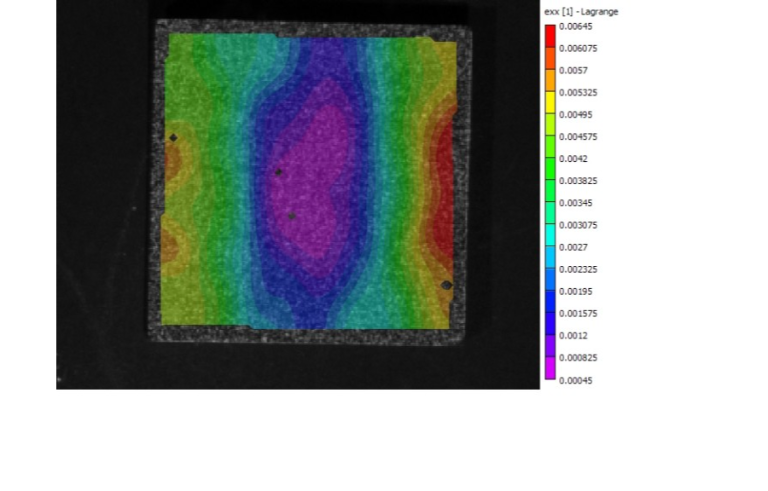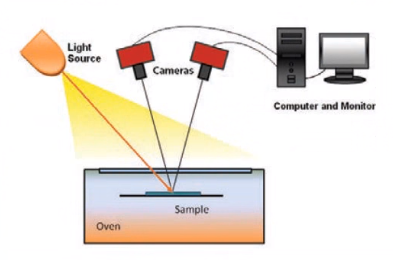Vision Measurement Technologies
Some manufacturers of metrology systems utilize one single technology to measure a wide range of components, despite the different form factor of each of the components, which can drastically affect the quality of the measurement. At Akrometrix, we take the time to understand the problem and the objectives you are trying to achieve. Each one of our vision technologies is a unique combination of the tool we use, the process we follow, and the technology we apply.
Shadow Moiré
Allows for the measurement of out-of-plane displacement (warpage) on smooth, continuous surfaces over temperature.
Learn MoreDigital Image Correlation
Uses speckle pattern matching to provide x-y strain and CTE data over temperature for accurate deformation analysis.
Learn MoreDigital Fringe Projection
Capable of measuring discontinuous surfaces with high data density and large step height variations.
Learn MoreSHADOW MOIRÉ
Warpage Vision Technology ideal for measuring samples w/ a flat continuous surface. Ideal for measuring BGAs/LGA/PCBs
Shadow Moiré is a non-contact, full-field optical technique that uses geometric interference between a reference grating and its shadow on a sample to measure relative vertical displacement at each pixel position in the resulting image. It requires a Ronchi-ruled grating, a white line light source at approximately 45 degrees to the grating and a camera perpendicular to the grating.
Its optical configuration is shown in the figure below. A technique, known as phase stepping, is applied to Shadow Moiré to increase measurement resolution and provide automatic ordering of the interference fringes. This technique is implemented by vertically translating the sample relative to the grating.
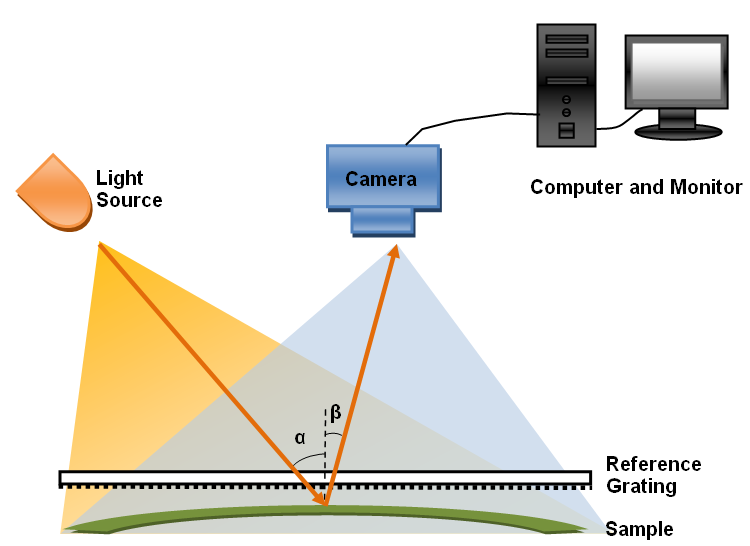
Shadow Moiré measurement technique strengths include:
- Full field data acquired in less than 2 seconds
- Resolution down to 0.5 micron
- Resolution is unchanged by field of view
- Highly robust with minimal moving parts
The Shadow Moiré technique is offered on the following Akrometrix Systems:
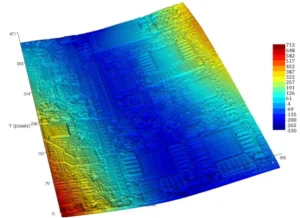
Digital fringe projection
Warpage Vision Technology ideal for measuring samples w/ discontinuous surfaces and varying step heights. Ideal for PCBAs, solder balls, and connectors.
Digital Fringe Projection (DFP2 module) compliments the Shadow Moiré technique by adding step height measurement capabilities at high data point density. This technique is particularly useful for measurement of connectors, sockets, assembled modules, and PCB local areas.
DFP has the disadvantage of warpage resolution being dependent on field of view. For this technique, a variable field of view is provided from 240x192mm down to 45x36mm, generating a measurement resolution down to 2.5 microns.
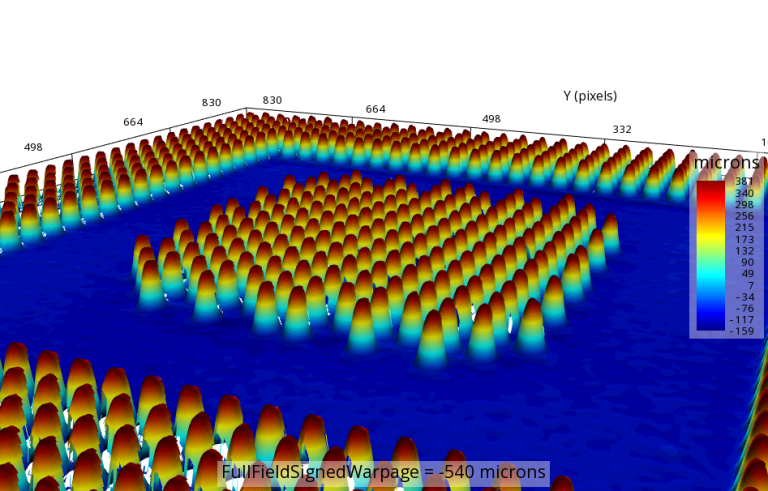
Digital IMAGE Correlation
For the Measurement of In-plane Strain and Coefficient of Thermal Expansion (CTE)
Digital Image Correlation (DIC) is a non-contact, full-field optical technique for measuring both in-plane and out-of-plane displacements of an object surface. A high contrast, random speckle pattern is applied to the surface of interest. Two cameras are mounted above the oven, viewing the sample from different angles.
Two simultaneous images from both cameras are digitized. Software identifies the same point on the surface from both perspectives, using pattern recognition of the speckles within a small pixel window. Using the principle of stereo triangulation, the spatial position of the pixel window relative to the cameras is determined in 3D space. Stepping the pixel window across the sample, the displacement of the surface can be mapped out in 3 axes.
